- Home
- Veronica Roth
Ark [Forward Collection]
Ark [Forward Collection] Read online
This is a work of fiction. Names, characters, organizations, places, events, and incidents are either products of the author’s imagination or are used fictitiously. Any resemblance to actual persons, living or dead, or actual events is purely coincidental.
Text copyright © 2019 by Veronica Roth
All rights reserved.
No part of this book may be reproduced, or stored in a retrieval system, or transmitted in any form or by any means, electronic, mechanical, photocopying, recording, or otherwise, without express written permission of the publisher.
Published by Amazon Original Stories, Seattle
www.apub.com
Amazon, the Amazon logo, and Amazon Original Stories are trademarks of Amazon.com, Inc., or its affiliates.
eISBN: 9781542092067
Cover design by Will Staehle
Ark
Two Months Left
Samantha’s hands were still red from the cold, the skin over her knuckles taut and dry. She had gone that morning to bring supplies to the Naomi, a small fishing vessel off the coast that she had bought with the last of her money, before money lost all meaning.
She had learned the knot to moor the boat months before she got it. A bowline knot, which started with a loop in the rope, the end snaking up and down and through. The world’s most useful knot, the website had said. The internet had disappeared a few weeks later, just before the evacuation.
In the Bible story, Noah had built a boat to survive the flood, to endure. The Naomi would not survive anything. That was not her purpose.
Samantha sat down at her station and breathed warm air on her knuckles.
“I,” Dan said, sitting back from the computer screen, “would really like a smoke.”
Samantha was in the middle of a tissue ID. She stared through the magnifier at the tiny leaves of what seemed to be a clump of peat moss in an attempt to match it to the grid of images on the screen in front of her. Ambuchanania or Sphagnum were the two genera options confronting her. The Sphagnum’s leaves, the screen told her, would have large dead cells alternating with the living ones. She needed to take a sample for the microscope.
“You don’t smoke,” she said as she got up to fetch a slide.
“I don’t smoke anymore,” Dan said. “I quit when I was twenty.”
Clean slide in hand, Samantha sat again and reached for the iodine. “And now that you work in a confined space with other people, you suddenly want to do it again?”
“Well, consider this,” Dan said. “Not only is it against the rules to smoke on either Ark ship, there’s also not gonna be tobacco. Not the fresh stuff, anyway. So isn’t it our obligation to experience everything Earth’s plants have to offer for as long as we can?”
She used a scalpel to scrape a sample from one of the tiny leaves. Her hands trembled when she had to do delicate work like this, but she was used to it now after taking an incalculable number of samples from an endless supply of plants. She put the sample down in the iodine, dabbing a few times to get it loose, and covered it with a slip. The iodine-stained sample spread wide beneath the glass.
She put the slide on the microscope stage and secured it with the clips. Her hand went automatically to the coarse-focus wheel to bring the stage closer to the lens. She realized, as she brought her eye to the eyepiece, that Dan was waiting for an answer.
“I’ve never smoked,” she said.
“Well,” he said, “there’s no better time to try.”
Dan had shaved that morning, and there was still a tiny square of red-spotted toilet paper on his neck from where the razor had nicked him. He had broad shoulders and round, perpetually pink cheeks. He’d been eating nonstop since Earth was evacuated of most of its inhabitants. There would be plenty of time to get trim again on a spaceship hurtling toward Earth the Sequel, as he liked to call it, eating bland rations.
“Sure,” Samantha found herself saying. “Why not?”
When she was seven years old, there was a windstorm that knocked all the leaves off the maple tree in the backyard. She woke up to bare branches and a lawn blanketed in orange, yellow, and red. Her father had spent all Saturday raking them into a giant pile at the far end of the yard, and then, as the sun set, he had set them on fire.
She had avoided him all day—it wasn’t smart to interrupt her dad in the middle of a chore, or in the middle of anything, really—but when she saw that he was just standing there next to the leaf pile, she had put on one of his old coats and joined him. The sleeves fell over her fingers, keeping them warm, and the elastic hem brushed her kneecaps.
“Don’t get too close,” he said when he saw her.
She stuck her hands out of the sleeves to feel the heat from the fire against her palms. The patch of woods behind the house was bare of leaves, too, except the pines, heavy with needles. Her father had told her, the year before, that every winter she saw would be one of Earth’s last winters. He had fallen asleep a little while later with a glass of scotch balanced on his lap.
She looked up at the silhouettes of the branches against the color-rich sky. The wind shifted, and flakes of ash blew toward her face, pricking at her eyes. One landed on her lip, and she tasted it with her tongue. It tasted like burned leaves curling up at the edges in the flames, like musty old coats, like breaths you could see unfurling.
That, Samantha thought, standing bundled up near the back door with Dan, was how cigarettes tasted too.
The eyepiece was cold against her eye socket. Everything was cold in Svalbard, an archipelago north of the Arctic Circle that was technically part of Norway. In the last several years, as the tenants of Earth prepared to evacuate, Svalbard had seen an influx of scientists from all over the world, thanks to its existing store of genetic material in the Svalbard Global Seed Vault, which had already housed more than one million samples when the apocalyptic news came.
Borders had stopped mattering after the asteroid Finis was discovered twenty years ago. Everyone was just an Earthling now.
The global scientific community had begun their work right after Finis’s discovery: preserve as much genetic material from Earth as possible before the catastrophic collision occurred. They had sent researchers out into the world with new technology for preserving live plants and animals, and they had collected hundreds of thousands of samples in facilities all around the world. At the same time, they had constructed two massive storage ships, one in Australia and one in Svalbard—Ark Flora and Ark Fauna, they were called—and began cataloging all the data they had received, and would still receive, until the very end. There had been talk, in the beginning, of simply loading all the samples onto the ships and analyzing them later. But the space on the ships had been limited, and there were too many repeat samples. Better to get one hundred unique specimens, the leader of the Ark Project had said, than three hundred duplicates.
Ark Flora and Ark Fauna would depart in two months’ time, with a narrow window of escape before the asteroid hit. They would join the other Earth evacuees en route to Earth the Sequel (formally known as Terra). None of the people on board would see the new planet in their lifetimes, though their children would.
Samantha hadn’t been involved in the Ark Project from the beginning, or even the middle, really. She had joined the effort when the call for End Days workers came. The qualifications had been a master’s-level degree in a related field, no criminal record, no history of mental illness, and no living family. No one to lose if Finis showed up early, or if the ship failed to launch.
“Orphans, gather round!” The shout came from the doorway of the laboratory at the same time every day: 11:45 a.m. The young woman to whom it belonged, Averill, was small, slim through the torso, and thick through the hips and thighs.
She had learned as a girl to speak only in her chest voice, so she could be heard over her two brothers, and the habit had stuck.
Her brothers, as well as her parents, had died in a car accident when she was eighteen years old. Everyone here knew everyone else’s tragedies. They were as commonplace as talking about the weather.
In front of Averill was a cart with two rows of bagged lunches on it. They were for the higher-level scientists to take to their private laboratories, where they performed more sophisticated work than identifying plant samples using pictures on a screen: monitoring and maintaining the environments of the storage facilities to maximize species survival.
“It’s everyone’s favorite time,” Averill said with a grin. “Lunch-delivery time. Today’s contestants are Brendan, Alice, and Sam.”
Samantha pulled away from the eyepiece of the microscope and crossed the room to the cart. Brendan, boyish and sturdy, and Alice, her shiny black hair pushed behind her ears, were already standing there. Averill stuck out her fist, which had three straws in it. Brendan picked first, then Alice, and then Samantha.
Samantha’s was the shortest. She sighed. Almost all the higher-ups were in the same building, their offices in a long row, but there was one that required trudging in full arctic regalia out to the remote greenhouse belonging to Dr. Nils Hagen. The man himself was inoffensive, but the walk was brutal, and the trip took over an hour.
Averill handed her the only insulated bag, the one with “Hagen” written on it in blocky letters, and Samantha lifted it up in a toast to the laboratory peons. They hooted in response, and she went out to retrieve her coat.
The first breath of wind made her aware of all the places she hadn’t covered—a line of skin above her cheeks and below the goggles, a narrow channel on one side of her hood that wasn’t drawn as tightly. She tugged her coat sleeve down to cover a patch of wrist skin not shielded by her glove and started the hike.
Hagen spent his mornings in the greenhouse with his orchids. Everyone from the peons to the head of the entire Ark Project had tried to convince him to move into the facility with the rest of the scientists, but he had refused. And because scientists who qualified for his position had been scarce—and were gone now, since everyone except them had evacuated Earth—he had to be catered to. He got all his work done anyway, so there wasn’t much to complain about except the inconvenience.
All around her was white. Even the sharp-edged hills in the distance showed only the faintest brown of earth through the snow and ice. Samantha had first arrived in Svalbard by helicopter, in the evening, so the settlement had shown itself in orange ropes of light, the paths that connected the low buildings. The land had glowed blue—beautiful in the way that a Rothko painting was beautiful, because it was empty enough to shrink a person and then swallow them.
There wasn’t a soul in sight. It wasn’t difficult to believe, in Svalbard, that the world was about to end.
She made it to the greenhouse, the glass reflecting white back to her, simultaneously glaring and invisible. Hagen’s little cabin was right next to the structure, a brown smudge set at the base of one of the hills that hugged their little settlement close. She pulled the first door open with a crunch and searched the steamy greenhouse for a sign of Hagen. Most of the time he came out to retrieve his lunch, so she didn’t even have to take off her goggles. She doubted he knew her face, though she had been there once a week for the last several months. But today there was no sign of him.
Samantha took off her gloves, her goggles, her hood. She tugged her scarf down, tasting wet wool, and unzipped her coat. She left everything on the ground in the entryway and opened the door to the greenhouse.
Humidity clung to her cheeks and eyelashes. There were three rows of plants, with two aisles between them. Everywhere she looked, there were leaves and stems and flowers of almost every color. A bloodred Cymbidium with half a dozen flowers was on one of the low shelves, the lips between the lower sepals touched with white. Beside it was some kind of pink Oncidium with delicate branches that unfolded into tiny flowers, no larger than her fingernails. And beyond them both were increasingly stranger and more colorful orchids that looked almost monstrous, their labella bulging, their petals thinning to needles.
“They grow in every color except blue and black.” Through the leaves and flowers she saw the slope of a shoulder and Nils Hagen’s pale hand cupping one of the flowers near him.
“But . . .” Samantha stepped into the greenhouse, forgetting the sack in her hand, to point to one of the nearest flowers, another Cymbidium with a fuchsia central column. The petals looked black to her.
“Just a very deep purple-red,” Hagen said, shaking his head. He tilted one of the flowers up toward the light, and she saw that it was dark burgundy, the color of a glass of Barolo. “It’s the same with the so-called black Paphiopedilum.”
“And the glistening sun orchid,” Samantha added with a smile of triumph when Hagen looked taken aback. “My mom loved them, always had them in the house. I guess she primed me to study horticulture.”
“And your mother is now . . .”
“Dead,” Samantha supplied. “Everybody’s family is dead around here, you know.”
“Yes.” Hagen’s brow furrowed. “I keep forgetting.”
Samantha held up the bag that held Hagen’s lunch. “Your tuna sandwich.”
“I don’t suppose you would help me with something first.” Hagen looked her over, and she returned the favor. He was older but not quite elderly, his hair threaded with silver and his face deeply lined. He was tall, with rounded shoulders, and trim, though there was a bubble of a belly reined in by his leather belt. “You look strong enough for the task. It requires more than one set of hands.”
“Sure,” Samantha said. “Beats clicking a bunch of pictures on a screen all afternoon.”
“Ah, so you work in species identification,” Hagen said. “You must have good color vision, then, or they would have shoved you into the Ark Flora’s storage area to play a highly sophisticated game of Tetris with all the identified samples.”
Samantha laughed. “All the better, since I was never any good at puzzles. But I’m good at detail, generally. And tedium. Highly tolerant of tedium.”
“Bodes well for a scientist.”
“I’m not a scientist,” she said, smiling. “I’m a horticulturist.”
“You have a master’s of science, like everyone else left on Earth right now,” Hagen said. “And you’re working on the very last scientific endeavor ever to take place on this planet. You are indeed a scientist. Now, come and help me with this shelf.”
An old wooden desk stood at the back of the greenhouse, wedged against the wall. There were two shelves just above it, one full of books and the other empty, sagging on one side where the bracket had broken. The small pots that had once been on the shelf, evidently, were now stacked on the desk itself, on top of notebooks and papers and books. A mug with vines painted on it stood right near the back. It was lopsided—clearly handmade, with the indents of fingers baked into its surface.
“Now, if you could hold the wood up—it’s solid wood, heavier than it looks,” Hagen said. “I will put up a new bracket. I’d rather not have to detach the shelf entirely, as it was quite difficult to get straight in the first place.”
He spoke with only a faint accent, but in the slower, halting way that Samantha was used to from non-native English speakers.
She leaned over the desk and braced herself against the shelf, pushing it into the wall and lifting it from beneath at the same time. Hagen took a screwdriver to the bracket, and once it was free, she realized the shelf was, indeed, heavier than she had expected. She gave a surprised grunt, and pushed closer to the wall, her arms shaking.
“You know,” she said, her voice strained from the effort, “it may not be worth fixing a shelf you’re just going to abandon in two months.”
Hagen’s smile softened. “I will not be abandoning it,” he said.
; She had heard rumors that Hagen intended to stay on Earth when the rest of them left, but it was different hearing him confirm it himself. There was nothing melancholy about the way he said it; in fact, he sounded almost fond of the idea, like it was an old stray cat that he put out food for.
She thought of the Naomi, held fast by her bowline knot, bobbing on the waves.
“Well,” she said, “I guess it’s good we’re fixing it, then.”
Early estimates suggested that the asteroid, calculated to be at least five miles in diameter, would flatten an area the size of the United States when it struck. The resulting debris and dust in the atmosphere would block out the sun, and that would be what wiped out all life on the rest of the planet. So, Samantha figured, a person would be able to live for some time, depending on their existing food stores, if the asteroid didn’t strike anywhere near them.
“Everybody’s family is dead around here, you know.”
He put the new bracket in place and began screwing it in. As the bracket took hold, less of her strength was required, until she was able to release the shelf and start arranging the pots on top of it.
“Would you mind if I asked why?” she said.
“You wouldn’t be the first,” Hagen said, dusting off his hands. He took off his glasses and set them on his desk. His eyes creased at the corners, she noticed, like he was always smiling, even when he wasn’t.
“I don’t mind being unoriginal,” she replied.
The answer seemed to charm him. He chuckled a little.
“There are many reasons,” he said, “but there is also just one: I can’t bear to leave my home.”
Samantha nodded. She picked up the bag that said “Hagen” on it and set it on his desk, next to the homemade mug.
“Have a good lunch,” she said.
“If you want to learn more about orchids,” he said, “you might consider bringing lunch for yourself next time you come.” He tilted his head. “If you love them as your mother did, I mean.”

 Divergent
Divergent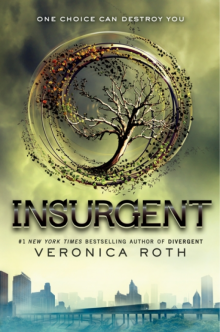 Insurgent
Insurgent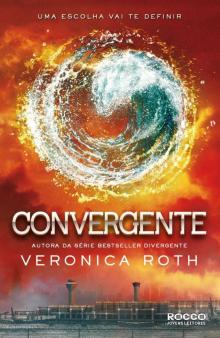 Allegiant
Allegiant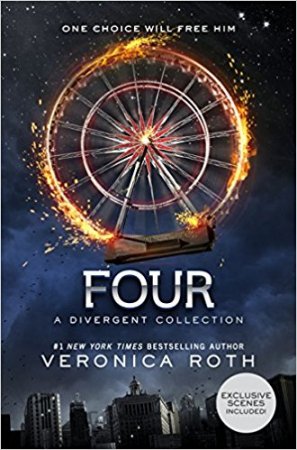 Four: A Divergent Collection
Four: A Divergent Collection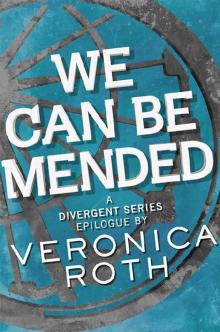 We Can Be Mended
We Can Be Mended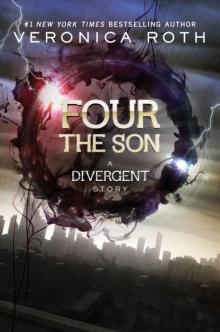 The Son
The Son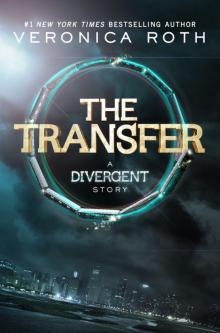 The Transfer
The Transfer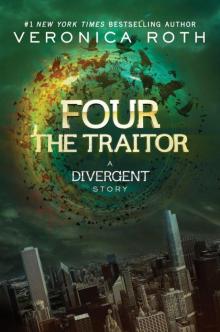 The Traitor
The Traitor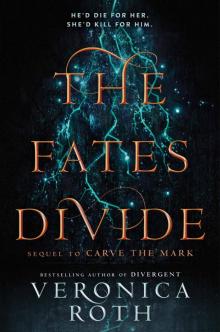 The Fates Divide
The Fates Divide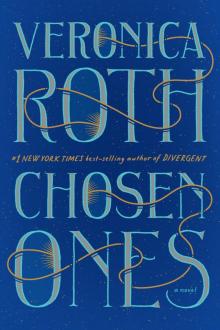 Chosen Ones
Chosen Ones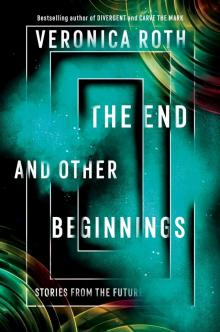 The End and Other Beginnings
The End and Other Beginnings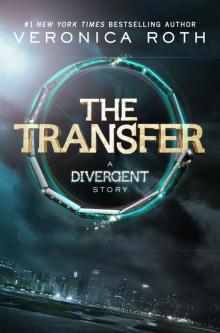 The Transfer: A Divergent Story
The Transfer: A Divergent Story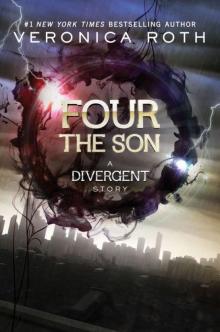 Four_The Son
Four_The Son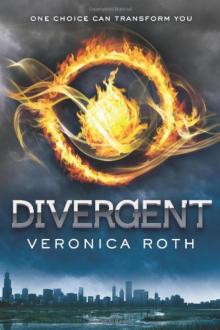 Divergent dt-1
Divergent dt-1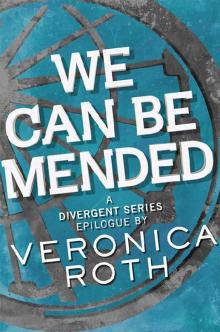 We Can Be Mended_A Divergent Story
We Can Be Mended_A Divergent Story![Ark [Forward Collection] Read online](http://i1.bookreadfree.com/i1/03/31/ark_forward_collection_preview.jpg) Ark [Forward Collection]
Ark [Forward Collection]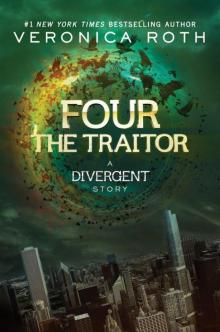 Four_The Traitor
Four_The Traitor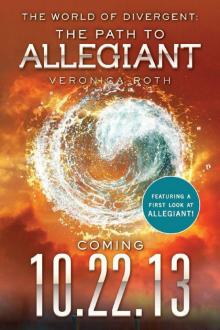 10.22.13_The World of Divergent_The Path to Allegiant
10.22.13_The World of Divergent_The Path to Allegiant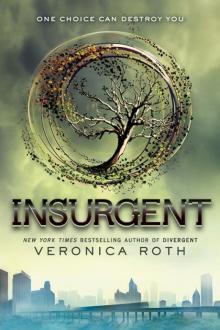 Insurgent (Divergent)
Insurgent (Divergent) The Divergent Series Complete Collection
The Divergent Series Complete Collection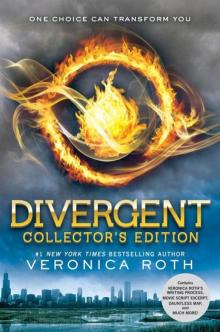 Divergent Collector's Edition
Divergent Collector's Edition Four_The Initiate
Four_The Initiate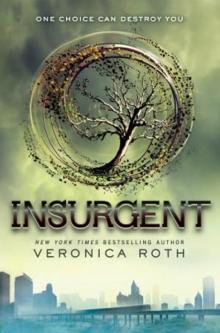 Insurgent d-2
Insurgent d-2